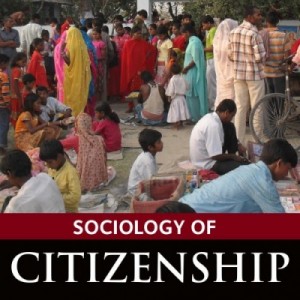 In 2009, after a long and contentious process of national dialogue that led to the approval of a new Constitution, the Republic of Bolivia officially changed its name to Plurinational State of Bolivia.
In 2009, after a long and contentious process of national dialogue that led to the approval of a new Constitution, the Republic of Bolivia officially changed its name to Plurinational State of Bolivia.
Over the last decade, the idea of plurinationalism has influenced public debates across the Andean region. In 2008, the Ecuadorian president Rafael Correa defined plurinationalism as the coexistence of several different nationalities within a larger state where different peoples, cultures and worldviews exist and are recognized. Yet, Bolivia was the first country to go all the way, not only including this idea in the Constitution (as Ecuador did) but actually changing its official name. This is not just a formality. The new Bolivia is engaging in a process of in-depth institutional reforms, challenging mainstream narratives and political structures and reinventing a model of the state and creating notions of citizenship better suited to highly diverse ethnic and cultural landscapes.
In Latin America, the effort to challenge assimilationist and universalist models of citizenship (both republican and corporatist) took shape during the 1990s, when multicultural politics emerged and culture and identity became legitimate political claims. However, multiculturalism was not an easy partner for the neoliberal consensus, and claims for collective (rather than individual) rights and for territorial autonomy raise what Deborah Yashar (1999) calls a “postliberal challenge”. While concepts such as multiculturalism and pluricultural citizenship were a key part of the neoliberal agenda, it was with the Leftist turn in the following decade that the more radical idea of a plurinational state took shape. In Bolivia, the election of Evo Morales as President in 2005 and the rise of the Movement Towards Socialism (MAS) gave political meaning to plurinationalism as an alternative model of state and citizenship, which was meant to overcome the neoliberal multicultural framework for diversity management.
A discussion around this new post-neoliberal model might begin through a new and still little explored lexicon. Firstly, notions of plurinationality and plurinationalism enable a distinction between nationality (as the status of belonging to a particular nation) and nationalism (as the attitude and actions that the members of a nation pursue when they care about their national identity or when they seek to achieve self-determination). A second distinction can be traced between plurinational and post-national models of citizenship. In brief, the plurinational state is based on the formal recognition of different ethno-cultural groups (defined in terms of ‘peoples’ and ‘nations’) within the framework of a nation (often nationalistic) state. The idea of ‘nation’ in its classical meaning still persists: what is questioned is its equivalence with the geopolitical dimension of the state. On the other hand, post-nationalism in political theory tries to overcome the very idea of nation (in geopolitical and symbolic terms) and advocates a state in which, in the words of Seyla Benhabib (2011), “individuals are rights-bearing not only in virtue of their citizenship within the state, but in the first place in virtue of their humanity”.
Finding an operational definition of a plurinational state is not easy. The new Bolivian Constitution does not include one, but according to a working document drafted by indigenous and peasant organizations during the Constitutional Assembly: “The plurinational state is a model of political organization for the decolonization of our nations and peoples, reaffirming, recuperating and strengthening our territorial autonomy”.
In Bolivia, plurinationalism takes the form of a political project able to mobilize traditionally marginalized social sectors, in particular peasants and indigenous populations, triggering a process of renegotiation of meanings, identities and political spaces. At the same time, plurinationality has been shaped through an on-going process of institutional and legal reforms. These include the introduction of territorially autonomous regimes that can be formed without the need to have been part of other pre-existing political-administrative divisions, but on the bases of ethno-cultural features; the recognition of community justice as parallel and coexistent with ordinary justice, exercised by the “native indigenous peasant nations and peoples’ authorities according to their principles, cultural values, norms and proceedings” (Art. 199); and the consolidation of a system of collective land titling following ethnicity- based criteria.
The Bolivian experience illustrates how, in recent times in Latin America, it has become procedurally accepted to resort to identity and ethnic self-identification to have access to resources and rights, which are not guaranteed on the bases of criteria that depend only on belonging to a state as citizens. Hence, the great question at stake within debates on plurinationalism is whether it can reconcile particular rights based on identity with strong state sovereignty and a discourse of equality, while avoiding new exclusions and potential conflict associated with territorializing models of ethnocultural difference. What is under attack is the resilient but contentious model of the nation-state, one that has been at the core of great historical transformations as well as of dreadful conflicts and social disasters.
However, while criticizing the idea of ‘nation’ as intrinsically colonialist and incompatible with the Latin American context, the new constitutional and citizenship model does not manage to emancipate itself completely from this very idea, but rather multiplies its attributes by adding the prefix ‘pluri’. In other words, plurinationalism challenges the equation of state and nation, moving beyond notions of the nation as an identitarian, territorial and institutional superstructure that organizes and complements the state. A process of discursive legitimation of national plurality was undertaken: no longer one ‘imagined community’ (as postulated by nationalisms), but many ‘imagined communities’ (Fontana 2014); not one, but many nations. In this sense, the difference between ‘plurinational’ and ‘pluricultural’ seems to go beyond pure terminology. The idea of plurinationalism implies an ethno-cultural conception of nation(s) that prevails over the idea of the nation as a political community founded on the principle of liberal citizenship.
Undoubtedly, the Bolivian plurinational model formulates a critique of, and attempts to overcome, the identitarian homogenization imposed by earlier models of citizenship. Yet, questions arise on the potentialities for the new plurinational state to foster an innovative process of change, since it still seems to be linked to old models of territorial organization and political categories. The Bolivian experience also highlights the challenge of producing innovation in citizenship-making and the resilience of the “state” and the “nation”, two poles between which the pendulum of contemporary politics is still hopelessly oscillating.
This post is part of our Sociology of Citizenship series, hosted in partnership with Oxford’s Department of International Development.
References
Benhabib, S. (2011) Dignity in Adversity. Cambridge: Polity Press.
Fontana, L.B. (2014) “The ‘Indigenous Native Peasant Trinity’: Imagining a plurinational community in Evo Morales’ Bolivia”, Society and Space, 32(3): 5
Yashar, D. (1999) “Democracy, Indigenous Movements and the Postliberal Challenge in Latin America”, World Politics, 52(1): 76-104








1 Comment